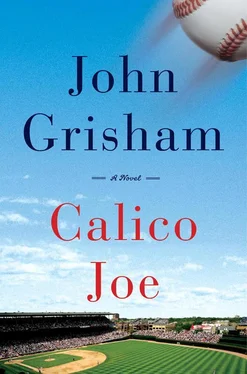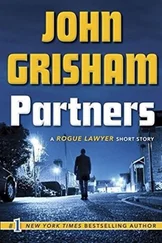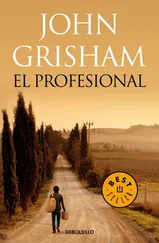“Such as?”
“Joe is brain damaged. Joe is disabled. Joe is bitter. And so on. The family is very distrustful of anyone who shows up and wants to talk about Joe. That’s why they would never allow him to speak to you.”
“Could I talk to his brothers?”
“Who am I? You’re on your own, but I wouldn’t recommend it. Red and Charlie are nice enough, but they can be tough guys. And when it comes to their little brother, they can turn nasty real quick. They carry guns, like a lot of people around here. Hunting rifles and such.”
The lemon gin is settling in, and I want to change the subject to anything but guns. I take a long sip, as does Mr. Rook, and for a moment the only sounds are the whirling blades of the ceiling fans. Finally, I ask, “Did you see him play at Wrigley?”
A wide, nostalgic smile breaks across his face, and he begins to nod. “Twice. Fay and I drove to Chicago early in August of that summer. The Sports Illustrated piece had just been published, and the world couldn’t get enough of Joe Castle.”
“How did you get tickets?”
“Scalpers. There were a lot of folks around here who wanted desperately to get to Chicago for a game, but word was out that you couldn’t get tickets. Joe got a handful each game, and there was always a fight for those. I remember drinking coffee one morning downtown and Mr. Herbert Mangrum walked in. He had some money, and he had just flown to Pittsburgh to watch the Cubs. Said he had to pay a scalper $300 for two tickets, in Pittsburgh. Herb was a big talker, and he went on and on about seeing Joe in Pittsburgh.”
“So you drove to Chicago with no tickets?”
“That’s right, but I had a contact. We got lucky and saw two games. Spoke to Joe after the first one. The kid was on top of the world. We were so proud.”
“Which games?”
“August 9 and 10, against the Braves.”
“You missed the fun. He got ejected the next day.”
Mr. Rook licks his lips, cocks his head, and gives me a strange look. “You know your stuff, don’t you?”
“Yes sir, I do.”
“Could you please drop the ‘sirs’ and the ‘misters’? I’m Clarence, and my wife is Fay.”
“Okay, Clarence. What do you want to know about the short, happy, and tragic career of Joe Castle?”
“How many games did he play?” Clarence asks, knowing the answer.
“Thirty-eight, and I have the box score for every one. He would’ve played forty-three but for the ejection on August 11, the day after you saw him play.”
Clarence smiles, nods, takes a long sip, and says, “You’re wrong, Paul. He would’ve played three thousand games if he hadn’t been beaned.” He sets his drink on the table, stands, and says, “I’ll be right back.”
He returns with a cardboard box, which he sets on the floor next to his sofa. From it he removes four thick three-ring binders, all matched and perfectly organized. He places them on the wicker table and says, “This is the book I never wrote—the story of Joe Castle. Many years ago, I started the first chapter, then put it aside. This is not the only unfinished project, mind you, in fact there are many, and I suppose the world is a better place because of my tendency to procrastinate.”
“How can a newspaper editor procrastinate? Doesn’t your life revolve around deadlines?”
“Some deadlines, sure, but because we stare at the calendar all day long, we tend to shove aside our other projects.”
“So why didn’t you write this book?”
“Truthfully, it was the family. I talked to Red one time, and he didn’t like the idea. This town is too small to make enemies, and if the family wasn’t willing to cooperate, then the book was not worth writing.” He flips through the second binder and finds the tab for August 11, 1973. “Sit over here,” he says, patting a spot next to him. I move around to take a look, eager to see his research.
“This is one of my favorite stories,” he says, pointing to an article in the Tribune about Joe getting ejected for charging the mound. There was a large photo of a brawl. “By early August of that summer, the pitchers were throwing at Joe more and more. It’s part of the ritual of being a rookie, especially one who happens to be on a tear. But the Cubs had Ferguson Jenkins and Rick Reuschel, two tough guys who threw hard and were known to protect their hitters. There were rumors that Jenkins and Reuschel and some of the other Cubs pitchers had spread the word that if Joe got hit, the retaliation would be swift. As things turned out, Joe didn’t need any help. The Braves had a journeyman lefty named Dutch Patton, a big thick guy, six five or so, and the first time up Joe ripped a double, then stole third. We were still in Chicago but couldn’t get tickets to the game, so we were watching on television. When Joe came up in the third inning, Patton threw at his head and almost nailed him. The Cubs dugout went berserk; the fans were ready to riot. Joe yelled something at Patton, and he yelled something back. The home plate umpire got involved. A very tense situation. Joe got back in the box, dug in, and Patton went into his windup. Just as he released the ball, Joe dropped his bat and sprinted toward the mound. He was so quick and fast he caught everybody—including Patton and the catcher, Johnny Oates—completely off guard. I’ve seen the film clip a hundred times, and what happened was pretty frightening. Patton managed to swing his glove at Joe, who ducked and shot a right cross into Patton’s mouth. A left hook to the nose knocked him down and, like a jackhammer, Joe pummeled him with five more shots to the face, each one drawing blood. Patton left the field on a stretcher, didn’t wake up for six hours, and didn’t pitch for a month. Johnny Oates finally managed to pull Joe off, and by then there were forty players on the field slugging it out. The brawl lasted for ten minutes, and there were something like seven or eight ejections. Joe was suspended for five games, and the Cubs lost all five.”
As he talks, I listen intently and flip through his binder. I have a copy of the Tribune story, along with the photo, but my little scrapbook on Joe Castle is nothing compared with the spread before me. I know the story of Joe’s retaliation against Dutch Patton, and Clarence has not missed a detail.
“What was so funny, at least to me, was that I had seen Joe pull the same trick before,” Clarence is saying.
“When?” I ask as he pauses and waits for me to prompt him.
“When he was seventeen, in a high school game against Heber Springs. Scouts all over the place, all here to see Joe. First time up, he hit a ball over the lights in right field. The second time up, the pitcher threw at his head. He kept his cool, waited. When you charge the mound, your biggest threat is being tackled from behind by the catcher. All three of the Castle boys understood this rather basic part of the game. Joe waited until the pitch was thrown, then sprinted to the mound. It was pretty ugly. These were kids, and the benches did not empty as fast as they do in the big leagues …” Clarence’s words trail off as though he doesn’t want to finish the story.
“Did he hurt the pitcher?”
“Let’s just say the kid didn’t pitch for a few days, maybe weeks, maybe never, I don’t know, but I’m sure he lost his enthusiasm for throwing beanballs. Joe was not a bully, just the opposite; he was a really nice kid. But he didn’t like guys throwing at him.”
“Who broke up the fight?”
“The umpires. No player on the other team wanted to get near it.”
I flip back and forth and come across the cover of Sports Illustrated . “I’ll bet this caused some excitement around here.”
“Oh yes, not that there was a lack of excitement that summer. Everybody in town wanted to talk to the reporter. Let me refresh your drink there, Paul.” He takes both glasses to the back porch. I follow and peek into the kitchen, where Fay is slicing eggplant. When the drinks are ready, Clarence repacks his pipe and lights it. With fresh lemon gins in hand, we walk down the rear steps and gaze at the White River.
Читать дальше











